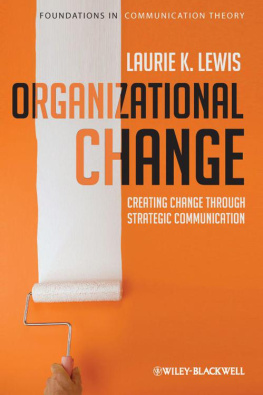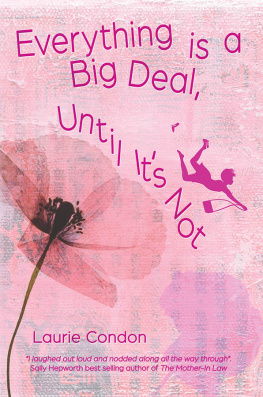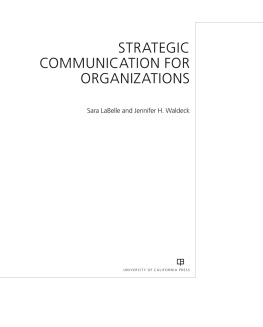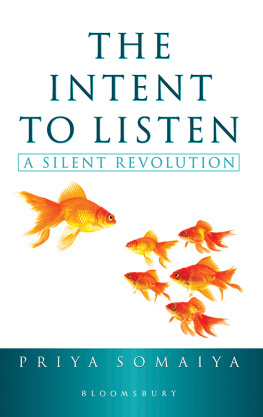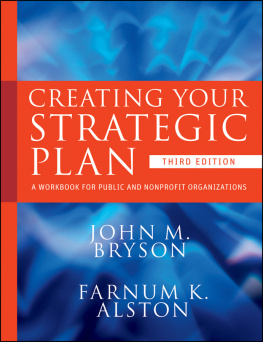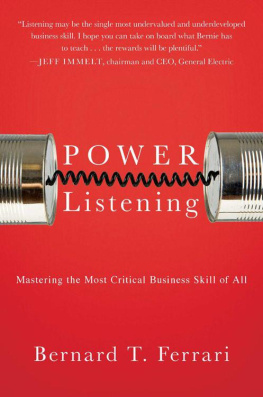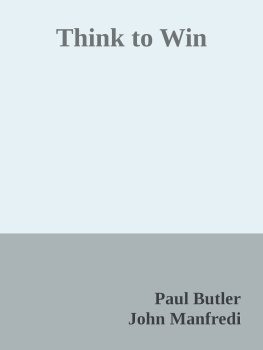Laurie Lewis - The Power of Strategic Listening in contemporary organizations
Here you can read online Laurie Lewis - The Power of Strategic Listening in contemporary organizations full text of the book (entire story) in english for free. Download pdf and epub, get meaning, cover and reviews about this ebook. year: 2019, publisher: Rowman & Littlefield Publishers, genre: Business. Description of the work, (preface) as well as reviews are available. Best literature library LitArk.com created for fans of good reading and offers a wide selection of genres:
Romance novel
Science fiction
Adventure
Detective
Science
History
Home and family
Prose
Art
Politics
Computer
Non-fiction
Religion
Business
Children
Humor
Choose a favorite category and find really read worthwhile books. Enjoy immersion in the world of imagination, feel the emotions of the characters or learn something new for yourself, make an fascinating discovery.

- Book:The Power of Strategic Listening in contemporary organizations
- Author:
- Publisher:Rowman & Littlefield Publishers
- Genre:
- Year:2019
- Rating:5 / 5
- Favourites:Add to favourites
- Your mark:
- 100
- 1
- 2
- 3
- 4
- 5
The Power of Strategic Listening in contemporary organizations: summary, description and annotation
We offer to read an annotation, description, summary or preface (depends on what the author of the book "The Power of Strategic Listening in contemporary organizations" wrote himself). If you haven't found the necessary information about the book — write in the comments, we will try to find it.
Laurie Lewis: author's other books
Who wrote The Power of Strategic Listening in contemporary organizations? Find out the surname, the name of the author of the book and a list of all author's works by series.
The Power of Strategic Listening in contemporary organizations — read online for free the complete book (whole text) full work
Below is the text of the book, divided by pages. System saving the place of the last page read, allows you to conveniently read the book "The Power of Strategic Listening in contemporary organizations" online for free, without having to search again every time where you left off. Put a bookmark, and you can go to the page where you finished reading at any time.
Font size:
Interval:
Bookmark:

Executive Editor: Elizabeth Swayze
Editorial Assistant: Dina Guilak
Senior Marketing Manager: Karin Cholak
Interior Designer: Wanda Ditch
Credits and acknowledgments for material borrowed from other sources, and reproduced with permission, appear on the appropriate page within the text.
Published by Rowman & Littlefield
An imprint of The Rowman & Littlefield Publishing Group, Inc.
4501 Forbes Boulevard, Suite 200, Lanham, Maryland 20706
www.rowman.com
6 Tinworth Street, London SE11 5AL, United Kingdom
Copyright 2020 by The Rowman & Littlefield Publishing Group, Inc.
All rights reserved. No part of this book may be reproduced in any form or by any electronic or mechanical means, including information storage and retrieval systems, without written permission from the publisher, except by a reviewer who may quote passages in a review.
British Library Cataloguing in Publication Information Available
Library of Congress Cataloging-in-Publication Data
Includes bibliographic references and index.
Library of Congress Control Number: 2019912667
ISBN 978-1-5381-2130-6 (cloth : alk. paper)
ISBN 978-1-5381-2131-3 (pbk. : alk. paper)
ISBN 978-1-5381-2132-0 (Electronic)
 The paper used in this publication meets the minimum requirements of American National Standard for Information SciencesPermanence of Paper for Printed Library Materials, ANSI/NISO Z39.48-1992.
The paper used in this publication meets the minimum requirements of American National Standard for Information SciencesPermanence of Paper for Printed Library Materials, ANSI/NISO Z39.48-1992.
Organizations that merely treat listening as a soft skill or a public relations tactic cede the most powerful strategic tool at their disposal. Further, organizational listening failures may lead to financial ruin, legal jeopardy, and reputational crises and bring harm to stakeholder relationships and to stakeholders themselves. Following are some recent cautionary tales of poorly executed or absent listening:
- In 2019, a Boeing aircraft, the 737 Max 8, was involved in two major fatal plane crashes five months apart in which over 150 people were killed in each crash. Following the second crash, with reports that a similar navigation issue was the likely cause, the US Federal Aviation Administration came under immense pressure to ground all 737 Max 8 aircraft in the United States. Numerous other governments across the globe grounded the aircraft from their fleets, and some banned them from their airspace. Moreover, reports surfaced that pilots had been complaining for months about a flaw in the functioning of the aircrafts safety mechanism. US flight attendants and ground crews urged their airlines to take the aircraft out of service. A handful of US airlines expressed continued confidence in the safety of the aircraft and refused to lift ticket-change fees for passengers requesting that they not fly on these planes (Josephs, 2019). Days after these events, US President Trump grounded the aircraft in the United States after support for the action built in Congress and the public at large.
- In 2019, Microsoft received a protest letter from employees objecting to contracting with the military. A group of anonymous employees authored an open letter about the Hololens contract with the US Army that states, We did not sign up to develop weapons, and we demand a say in how our work is used (Birnbaum, 2019, para. 12). Although the company representatives stated that they appreciated the feedback from employees and provided means for them to be heard, they are going ahead with the contract. Some employees reported fear of retribution if they identified themselves.
- At Michigan State University, a team doctor was accused and convicted of sexual abuse of Olympic athletes training at the universitys facilities. A series of individuals who ignored signs of the ongoing abuse or did little or nothing to bring it to a halt have been disgraced, suspended, fired, and/or sued; as a result of the scandal, the USA Gymnastics filed for bankruptcy (Meilhan & Close, 2018).
- Wells Fargo became embroiled in a massive scandal in which bank employees were encouraged to open credit card accounts for customers without their knowledge, leading to even larger, systemic fraud. The key whistle-blower was fired in 2010. Unable to find a new job and believing she had been blackballed, she filed a lawsuit claiming Wells Fargo had fired her for speaking out against the fraudulent practices she witnessed (CBS News, 2018).
- Victorias Secret announced it is closing 53 stores in 2019 (following 30 closures in 2018) due in large part to not keeping up with trends in customers changing sensibilities in the #MeToo era. Critics say that the runway show is outdated, images in stores are inappropriate, and other competing brands are more in line with current trends for more body-positive campaigns and inclusive marketing (Pagano & Hanbury, 2019).
Oftentimes, routines for listening to clients, customers, employees, and other key stakeholders in organizations are underutilized or completely ignored:
- Stanford Social Innovation Review conducted a survey of 1,986 nonprofit, foundation, and other charitable-sector leaders. The survey found that 88 percent of the leaders prioritize gathering client feedback. However, the survey showed two-thirds of those whose organizations were not collecting client feedback stated that the greatest barrier to implementing feedback systems was limited staff time and/or resources and 20 percent of respondents said it was too complicated or too costly (Milway, 2019, para. 2).
- A 2018 research study of more than 1 million anonymized records of internal whistle-blowing reports concluded that whistle-blowers are crucial to keeping firms healthy and that functioning internal hotlines are of paramount importance to business goals, including profitability and limiting the lawsuits companies face and the money firms pay out in settlements. However, whistle-blowing channels are often unavailable or unattended (Stubben & Welch, 2018).
Other recent examples illustrate that some organizations are responsive to stakeholders requests for listening to demands and suggestions:
- Trader Joes responded to a petition started by Greenpeace, which garnered more than 100,000 signatures, asking the company to make changes to the stores packaging. Trader Joes managers indicated in the company news flyer of their intentions to take positive steps to support their customers requests: As we fulfill these steps in 2019, on an annual basis, we are eliminating more than 1 million pounds of plastic from our stores .... And we expect that number to grow as we continue to identify opportunities and take action. Thank you; were listening (Hirsh, 2019, para. 7).
- The Academy of Motion Picture Arts and Sciences reversed a decision to eliminate some Oscar awards from the live 2019 telecast based on the feedback of its members. The reversal came on the heels of a growing mutiny. The American Society of Cinematographers (ASC) rebuked the organization in an open letter signed by dozens of industry figures. Also, movie fans blasted the academy on Twitter and stars joined in. A meeting that resulted in the decision to reinstate the awards was described as very productive and positive (Rottenberg, 2019, para. 4). The ASC leader wrote in a letter, We feel that [reversing the decision] would not only be great for the upcoming event but also a major step in the direction of the ASC working closely with the Academy to deal with the larger issues ahead of us (para. 5).
- The Fund for Shared Insight has created a tool, Listen for Good (L4G), that makes it simple and affordable for nonprofits to listen to end users. About 250 nonprofits are now piloting this simple survey to understand what is working, what isnt, and what could improve in its work to serve people who are at risk of homelessness, who use food banks to make ends meet, people with disabilities, and so on. These pilots are proving the importance of listening in fields where power imbalances between funders and beneficiaries can render silent the end user (Twersky & Reichheld, 2019).
Font size:
Interval:
Bookmark:
Similar books «The Power of Strategic Listening in contemporary organizations»
Look at similar books to The Power of Strategic Listening in contemporary organizations. We have selected literature similar in name and meaning in the hope of providing readers with more options to find new, interesting, not yet read works.
Discussion, reviews of the book The Power of Strategic Listening in contemporary organizations and just readers' own opinions. Leave your comments, write what you think about the work, its meaning or the main characters. Specify what exactly you liked and what you didn't like, and why you think so.

